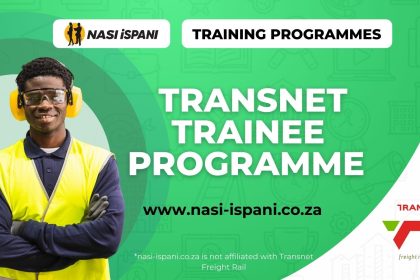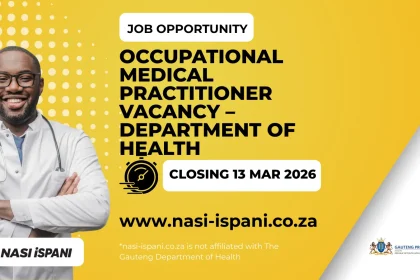It’s TVET College Month! Here’s Why Everyone’s Talking About It
Long-Term Insurance Learnership NQF Level 4
The Long-Term Insurance Learnership is now open at Ikhala TVET College, offering…
Nurturing Emerging Scholars Programme (NESP) 2026
If you are passionate about Creative Writing, Literature, and building an academic…
Transnet Yard Official Trainee Programme 2026
Apply for the Transnet Yard Official Trainee Programme 2026 at Transnet Freight…
Pharmacist Assistant Vacancies at Free State Department of Health
The Free State Department of Health is recruiting Pharmacist Assistants (Post Basic)…
Human Rights Watch Internships 2026
Human Rights Watch is inviting applications for the Africa Division Internship 2026,…
Exxaro Graduate Internships 2026
Apply for Exxaro Graduate Internships 2026 at Belfast Coal in Mpumalanga.
SASSA Grant Administrators x3 Posts
The South African Social Security Agency is recruiting three Grant Administrators for…
Occupational Medical Practitioner Vacancy – Department of Health
The Department of Health is recruiting four Occupational Medical Practitioner Grade 1-3…
EPWP Data Capturer Jobs: 80 Posts Available!
Apply for EPWP Data Capturer Jobs (80 posts) in KwaZulu-Natal.
EWSETA Accredited Skills Programme – NQF Level 4
South Africa’s renewable energy sector is growing rapidly, creating new opportunities for…
Cosmopolitan Central June/July 2026 Internships
Apply for the Cosmopolitan Central June/July 2026 Internships in Midrand.
FoodBev SETA Apprenticeship Programme 2026
The FoodBev SETA Apprenticeship Programme 2026 is officially open for applications. This…











